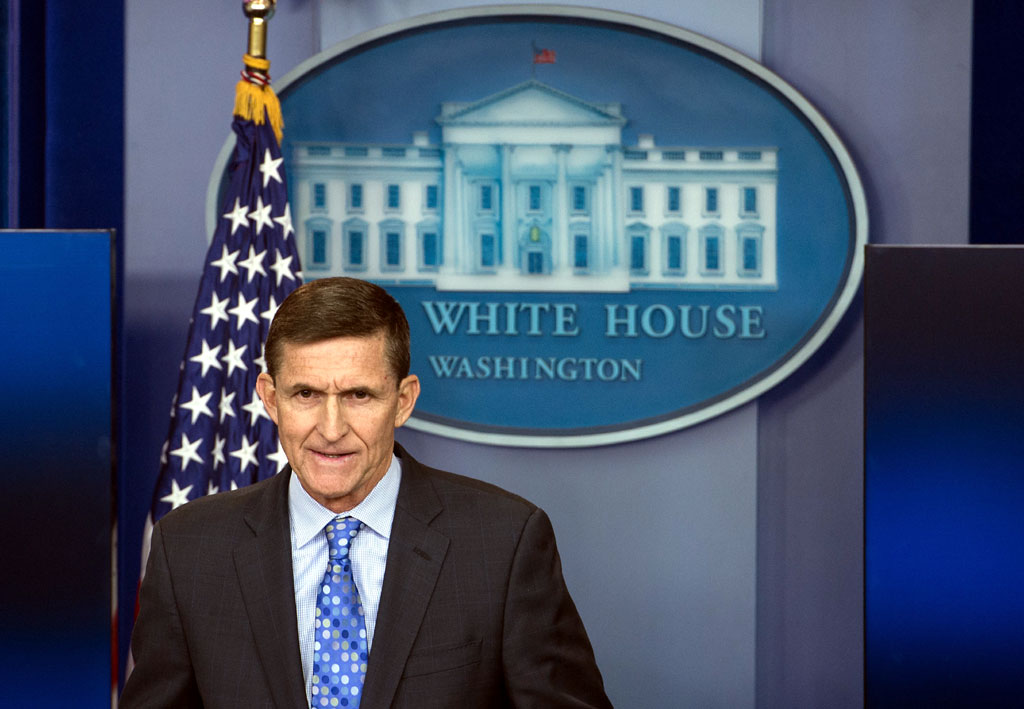Trump national security adviser Flynn resigns over Russian contacts
February 16, 2017 | Expert Insights

On 13 February 2017, Michael Flynn, President Donald Trump’s national security adviser resigned after revelations he had discussed U.S. sanctions with Russia’s ambassador before Trump took office and misinformed Vice President Mike Pence about the conversations. Flynn’s resignation came hours after it was reported that the Justice Department had warned the White House weeks ago, that Flynn could be vulnerable to blackmail for contacts with Russian ambassador Sergey Kislyak before Trump took power.
Retired General Keith Kellogg, who has been chief of staff of the White House National Security Council, was named the acting national security adviser while Trump determines who should fill the position.
Flynn’s departure was a subtle development in Trump’s young presidency, a 24-day period during which his White House has been repeatedly distracted by miscues and internal dramas. The departure could slow Trump’s bid to warm up relations with Russian President Vladimir Putin.
Why did Flynn resign?
He stood down over allegations he discussed US sanctions with a Russian envoy before Trump took office. It would have been illegal for Flynn to conduct US diplomacy as a private citizen, before he was appointed as national security adviser. The retired army lieutenant-general initially denied having discussed sanctions with Ambassador Sergei Kislyak, and Vice-President Mike Pence publicly denied the allegations on his behalf. Acting Attorney General Sally Yates had warned the White House about the contacts and that Flynn might be vulnerable to Russian blackmail on 26 January, said White House spokesman Sean Spicer.
Flynn submitted his resignation hours after Trump, through a spokesman, pointedly declined to publicly back Flynn, saying he was reviewing the situation and talking to Pence. He had promised Pence he had not discussed U.S. sanctions with the Russians, but transcripts of intercepted communications, showed that the subject had come up in conversations between him and the Russian ambassador. Such contacts could potentially be in violation of a law banning private citizens from engaging in foreign policy, known as the Logan Act
Analysis
Flynn did not make any promises about lifting the sanctions. But he did indicate that sanctions imposed by President Barack Obama on Russia for its Ukraine incursion “would not necessarily carry over to an administration seeking to improve relations between the U.S. and Russia. Flynn, a retired U.S. Army lieutenant general, was an early supporter of Trump and shares his interest in shaking up the establishment in Washington. He frequently raised eyebrows among Washington’s foreign policy establishment for trying to persuade Trump to warm up U.S. relations with Russia.
His departure, coupled with Russia’s aggression in Ukraine and Syria and Republican congressional opposition to removing sanctions on Russia, removes Trump’s most ardent advocate of taking a softer line towards Putin. His departure may strengthen the hands of some cabinet secretaries, including Défense Secretary Jim Mattis and Secretary of State Rex Tillerson.
However, Flynn’s exit could also reinforce the power of presidential aides Steve Bannon and Stephen Miller. Congressional Democrats expressed alarm at the developments surrounding Flynn and called for a classified briefing by administration.








Comments